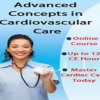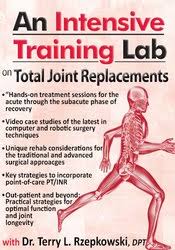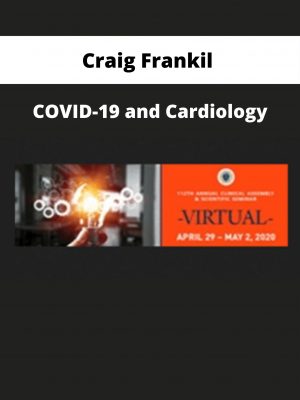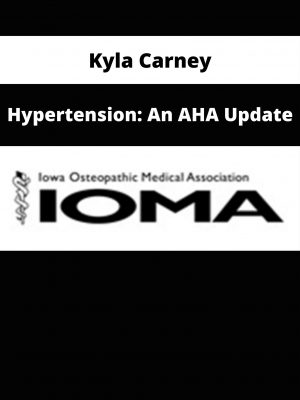Terry Rzepkowski – An Intensive Training Lab on Total Joint Replacements
$219 Original price was: $219.$62Current price is: $62.
Shopping Instructions:
- DISCOUNT 15% : SHOP15
- Product Delivery: Within 1 – 12 hours after purchase.
Recent advances in the techniques, equipment, and components now make total joint replacement a commonplace, elective surgery for patients of all ages with compromised articular joint components.
Terry Rzepkowski – An Intensive Training Lab on Total Joint Replacements
Description:
- “Hands-on” treatment sessions for the acute through the subacute phase of recovery
- Video case studies of the latest in computer and robotic surgery techniques
- Unique rehab considerations for the traditional and advanced surgical approaches
- Key strategies to incorporate point-of-care PT/INR
- Out-patient and beyond: Practical strategies for optimal function and joint longevity
Recent advances in the techniques, equipment, and components now make total joint replacement a commonplace, elective surgery for patients of all ages with compromised articular joint components. This challenges us to keep pace with surgical advances and the active expectations of their recipients.
Terry Rzepkowski, DPT, is excited to share his expertise and passion in orthopedics as a total joint rehabilitation specialist to provide an advanced understanding of total joint replacement surgery. Have you ever wanted to see the latest techniques in joint replacement… but your busy treatment schedule doesn’t allow you time? In this course, we will view together and discuss actual joint replacement videos to be able to discriminate between traditional options and all the very latest procedures for the shoulder, elbow, hip, knee and ankle.
We will also have “hands on” demonstrations and practice of intervention applications from the acute post-op through the advanced out-patient progression for the total joint replacement patient. You will leave with a greater understanding of the surgical process, be better equipped to help patients establish realistic expectations, have increased confidence in this ever-changing field and achieve improved patient reports of satisfaction following surgical interventions for Total Joint Replacement.
OUTLINE
Determinants for Joint Replacement
- Muscle imbalance
- Acute injuries
- Chronic conditions
- Systemic conditions
Pre-operative Selection Determinants
- Postural deformity
- Diagnostic imaging
- Function and pain level
- Conservative therapies
- Physical co-morbidities
- Relative bone density
- Post-op considerations: Acute rehab? Skilled nursing? Home? Which is the right choice in terms of accessibility, assistance, activity restrictions, and length of time?
Surgical Procedures with Video Presentations
- Total shoulder arthroplasty (TSA)
- Reverse TSA
- Total elbow arthroplasty
- Total hip arthroplasty (THA), conventional posterior and lateral approaches
- Anterior THA and THA revision
- Total knee replacement (TKA), conventional and subvastus
- Total ankle replacement
- The future of joint replacement:
- Video radio graph assisted total elbow arthroplasty
- Computerized and robotic assisted hip, knee and ankle replacement
Acute Post-op Recovery Interventions
- Pain management, opioid tolerance and opioid induced constipation (OIC)
- Wound care/Infection prevention demonstration of PICO dressing
- VTE prophylaxis
- Hands on demonstration
- Point-of-care PT/INR
- The latest recommendations on TED hose
- Cold recirculator units and cold compression devices
- Hands on demonstration
Treatment Sessions for the Acute through the Subacute Recovery Phase
- Physical/Occupational therapy
- Movement restrictions
- Demonstration of proper positioning
- Hands on practice
- UE: Donning and doffing of UE immobilizers
- Shoulder, distal UE exercises, and active proximal scapular exercise, cervical stretching techniques
- Hip: Immediate post-op exercises and progressions for the conventional/anterior approach hips, including transfer considerations
- Knee: Immediate post-op exercises and progressions for the conventional/subvastus approach, forms of stretching
- UE: Donning and doffing of UE immobilizers
Out-patient and Beyond: Strategies for Optimal Function and Joint Longevity
- Hands on activities
- Shoulder: Manual techniques to build proximal scapular stabilization, progression to rotator cuff strengthening
- Hip: Progression of core pelvic strengthening, proximal trunk stability, proprioceptive, balance, coordination activities, return of normal gait mechanics
- Knee: Progression of flexibility exercises, patellar mobilization, importance of proper footwear, proprioceptive, balance, coordination activities, return of normal gait mechanics
Would you like to receive Terry Rzepkowski – An Intensive Training Lab on Total Joint Replacements ?
OBJECTIVES
- Participate in hands-on application of acute and sub-acute intervention strategies for the total shoulder, hip, and knee patient.
- Evaluate the key indications for timing of joint replacement surgery, including post-op recovery considerations.
- Practice application of cold therapies, UE immobilizers, and point-of-care PT/INR.
- Evaluate post-operative pain, wound care, and anticoagulant options.
- Compare surgical approaches and procedures through video presentations to determine appropriate post-op restrictions.
- Explain the indications to reverse a TSA.
- Distinguish between the various surgical approaches currently available for THA.
- Differentiate between traditional surgical approaches and the subvastus approach for TKA.
- Analyze the advantages of computerized and robotic assisted replacement surgeries.
- Practice hands-on application of advanced out-patient intervention strategies for the total shoulder, hip, and knee patient
Related products
HEALTH & MEDICAL
HEALTH & MEDICAL
Bernadette Giorgi – Attitude Ballet & Pilates Fusion – Just B Method
HEALTH & MEDICAL
Regina Meredith – Conscious Media Network with Regina Meredith – Eric Pearl on The Reconnection
HEALTH & MEDICAL
HEALTH & MEDICAL
HEALTH & MEDICAL
HEALTH & MEDICAL
Dr. J.E. Williams & Kevin Gianni – How to Read Your Blood Tests
HEALTH & MEDICAL












